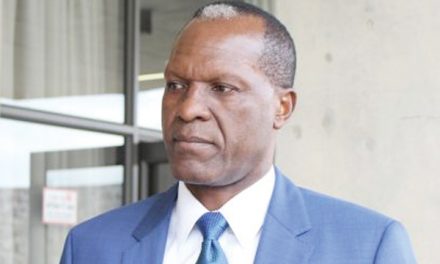
How to measure the year of accountability, 2019

By Llewellyn le Hané
Director Green Enterprise Solutions
Our President, HE Dr. Hage Geingob, told the nation that 2019 is the year of ‘Accountability’. It is also an election year and it’s not surprising that he calls it the year of Accountability as promises were made and ministers signed Performance Agreements.
In these agreements they pledged that they and their ministries and staff would achieve certain goals and fulfil defined parameters. However, let me be the first to point out the responsibility and accountability does not just lie with Government and everyone else can just coast along. Not by a long shot!
The President’s announcement caused some consternation as it raised certain questions. Wasn’t every year the year of accountability? Not just for government, but from the public and private sector as well. Let’s face it, nothing is a demonstration of accountability quite like having elections. It is basically a report card from the people to the government. But, government, ministers and the President don’t operate in a vacuum.
Very much like the concept of Harambee, us pulling together as a nation, we as Namibians are all accountable for where we stand as a country and how far we have advanced. Accountability is all well and good, but how do we measure this accountability? Do we measure accountability just once, or is it an on-going process that allows corporations, SOE’s, ministries and Governments to tweak things along the way?
One way in which one can measure improvements and hold people, departments and whole organisations accountable is through measuring and analysis using ICT-software. Setting benchmarks quarterly, or annually measuring where we stand and where we have improved or where we need to tweak policies, decisions, planning and executions is how we can and should be held accountable. Not just to external stakeholders, but we need to keep ourselves accountable so we can measure and improve and develop constantly and consistently. That’s why all types of organisations whether public or private or governmental should embrace measuring instruments .
Performance Management Systems are the systematic process by which employees are involved as individuals and members of a group, in improving organizational effectiveness in the accomplishment of an organisations mission and goals. Allowing the organisation to showcase improvements to its stakeholders.
Analytics and Business Intelligence refers to data-driven decision making with the help of aggregation, collection and analysis and visualization of available data to strategize and manage the organisation’s processes. Laying business processes and policies bare and seeing what advancements, improvements and developments have occurred using a point in time as the benchmark.
Statistical analysis is the science of collecting, exploring and presenting large amounts of data to discover underlying patterns and trends. Statistics are applied every day – in research, industry and Government – to become more scientific and precise about decisions that need to be made. This is a great way to hold organisations accountable, but also show and explain what improvements have been made over the past few years and how the analysis keeps driving the improvements and accountability internally and externally.
Fact-based assessment is finding and analysing where an organisation based on facts and not opinions or attitudes.
As stated at the beginning of the article, we all have to be held accountable. It isn’t just up to the government and ministries, they need to create a safe and secure macro-economic climate in which corporations, Public and Private Partnerships, people and academic development can flourish. But, we all need to be able to measure in one way or another where we stand and then be held accountable for our achievements and progress. Implementations of technology to improve service delivery really is the best way make this year the ‘Year of Accountability.’
It also means that positive and good improvements are measurable and allow organisations to shine and be proud to be held accountable in 2019.












































